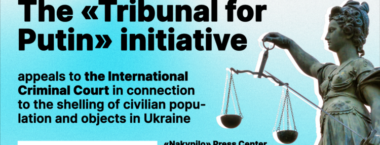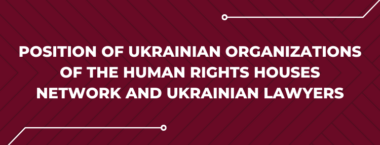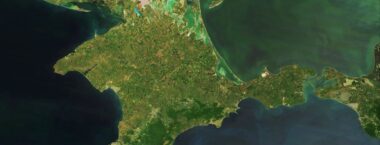On April 26, 2016 the Supreme Court of the occupied Crimea ruled to recognize the Mejlis of the Crimean Tatar people as an extremist organization and banned its activity.
The Ukrainian Helsinki Human Rights Union condemns these actions of the occupation authorities.
Discrimination and persecution of the Crimean Tatars, which were supposed to stop with the collapse of the USSR, resumed after the occupation of Crimea by the Russian Federation. As the Mejlis of the Crimean Tatar people has been publicly supporting the territorial integrity of Ukraine from the very beginning of the peninsula’s occupation, life of the Crimean Tatar community has been accompanied by politically motivated prosecution of its leaders, kidnapping of activists, systematic violations of the right to freedom of expression and assembly. Illegal searches, detentions and interrogations of the Crimean Tatars which are part of a deliberate policy of the peninsula’s authorities, have created an atmosphere of fear that forces many Crimean Tatars to leave Crimea.
The decision to recognize the Mejlis as an extremist organization actually means a transition to a new phase of mass persecutions not only of the Crimean Tatars both on the peninsula and beyond, for which the Mejlis is an important symbol of their identity, but as well of all its supporters who has become inconvenient for the occupation authorities.
Declaration of the National Sovereignty of the Crimean Tatar People defines Mejlis as the highest representative body of the Crimean Tatar people, which is authorized to act in accordance with the will of the people. Convention of the International Labor Organization “On Indigenous and Tribal Peoples in Independent Countries” adopted on June 27, 1989 provides for the right of indigenous peoples to preserve their own customs and representative institutions, as well as respect for the integrity of their values and institutions. The UN Declaration on the Rights of Indigenous Peoples along with other fundamental international instruments in this field establish the right of indigenous peoples to participate in the decision-making process through their representatives elected according to their own procedures. At the same time, it calls upon states to cooperate and consult with the indigenous peoples concerned through their own representative institutions.
Bodies of national self-government of the Crimean Tatars (Qurultay and Mejlis) are formed through exercising the electoral right and people’s right to self-determination. Mejlis is a representative body elected by the Crimean Tatar People, and thus the ban of its activities would entail violation of rights of the whole Crimean Tatar People.
All allegations made against the Mejlis by the Crimean authorities are focused on condemnation and punishment for statements of some of its representatives, who openly advocate preservation of the territorial integrity of Ukraine and criticize mass violations of rights of the Crimean Tatars on the peninsula. This situation clearly shows gross interference with the freedom of expression and authorities’ desire to suppress any form of dissent.
In addition, by recognizing the Mejlis as an extremist organization, the Crimean authorities unlawfully applied the legislation of the Russian Federation, whose application does not extend to the territory of Ukraine.
According to Arkadiy Bushchenko, “Current decisions of the Russian occupation authorities are the miasma of 1944. At that time the whole nation was convicted and deported. But they found courage and dedication to come together and return to their homeland. Today an attempt to preserve historical memory and self-identity is announced extremism. Remembering cannibalistic policy of the Soviet regime towards the Crimean Tatars, the successor of which stands the Russian Federation, you can be sure that this is only a pretext for a large-scale harassment of this long-suffering people”.
Amid the general human rights situation on the peninsula in the last two years, the decision to ban the Mejlis once again confirms that the policy of the occupation authorities of Crimea is aimed at stigmatization and persecution of the whole Crimean Tatar People that leads to escalation of systematic flagrant violations of human rights.



